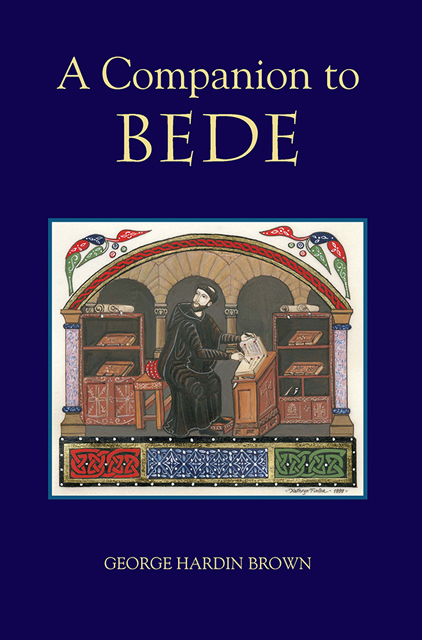Book contents
- Frontmatter
- Contents
- Preface and Acknowledgments
- Abbreviations
- 1 Bede’s Life and Times
- 2 Educational Works
- 3 The Biblical Commentaries
- 4 Homilies, Hagiography, Martyrology, Poems, Letters
- 5 The Histories
- 6 A Brief History of Bede’s Works through the Ages
- Works Cited
- Index of Bede’s Works
- General Index
- Anglo-Saxon Studies
4 - Homilies, Hagiography, Martyrology, Poems, Letters
Published online by Cambridge University Press: 03 March 2023
- Frontmatter
- Contents
- Preface and Acknowledgments
- Abbreviations
- 1 Bede’s Life and Times
- 2 Educational Works
- 3 The Biblical Commentaries
- 4 Homilies, Hagiography, Martyrology, Poems, Letters
- 5 The Histories
- 6 A Brief History of Bede’s Works through the Ages
- Works Cited
- Index of Bede’s Works
- General Index
- Anglo-Saxon Studies
Summary
THESE popular medieval genres, once of little modern interest except to specialists, have elicited a good deal of study in recent years, and Bede's extensive contributions to the genres, like his other works, have also generated considerable attention.
Homilies
“Homilies on the Gospel: two books” (HE, V. 24); Beda, Opera homiletica, CCSL 122, pp. 1–378; Bede, Homilies on the Gospels, trans. Lawrence T. Martin and David Hurst (1991).
For Bede, preaching that teaches the meaning of Scripture, correct theological understanding, and moral rectitude has a special, even sacramental, significance. Preachers are the successors of the prophets and apostles. In his view, preaching is the function not only of the priest but of all those rightly instructed in the faith. Thus, in a Christmas homily, explaining that the shepherds did not keep silent about the nativity mysteries revealed to them but proclaimed them, Bede says about Christian shepherds:
It is not only bishops, presbyters, deacons, and even those who govern monasteries, who are to be understood as pastors, but also all the faithful, who keep watch over the little ones of their house, are properly called “pastors,” insofar as they preside with solicitous watchfulness over their own house. And the office of pastor should [be acknowledged] in anyone of you who presides over even just one or two brothers by daily guidance, since he is ordered to feed them with a banquet of the word insofar as he is able. Moreover, every single one of you, brothers, who is believed to live as a private person holds the office of pastor, and feeds a spiritual flock, and keeps watch by night over it, if, gathering a multitude of good acts and pure thoughts to himself, he tries to govern them with just control, to nourish them with the heavenly pastures of the scriptures, and by vigilant shrewdness to keep [them safe] against the snares of evil spirits. As Alan Thacker notes, “Bede was thus concerned with a group whose qualifications were not primarily institutional, and indeed he deliberately refrained from identifying his doctores and praedicatores with the ordained hierarchy of bishops, priests, and deacons … He even envisaged women as preachers.”
- Type
- Chapter
- Information
- A Companion to Bede , pp. 73 - 94Publisher: Boydell & BrewerPrint publication year: 2010



